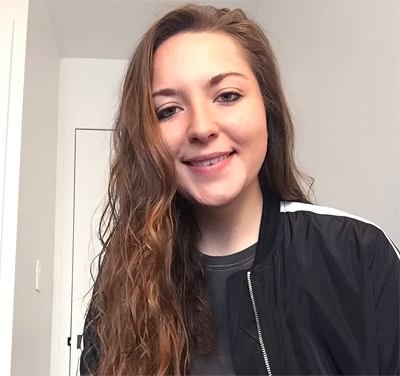Want to create an interactive fiction story but don't have a big budget to spend? Maybe you're nostalgic for the old radio plays popular in the 30s and 40s and want to create something similar? If so, you should consider producing an audio drama!
We previously talked about audio dramas in our podcast format and genre guide. They involve a cast of actors who play fictional characters in scripted stories. While audio dramas are more commonly found in the podcast world these days, it is possible to create an audio drama for live radio as well. After all, that's what the first broadcasters did in the olden days!
Producing your own audio drama can be very rewarding, but it does require a lot of hard work and preparation. Confused on how to get started? If you're looking to take the leap and craft an audio drama of your own, here's a short guide and some tips that might take the edge off the process.
Brainstorming a Concept
What's a story you've been dying to tell? Writing about something you know or something you're passionate about is always a good place to start when crafting a concept. In audio dramas, almost any story goes. It's basically theatre with microphones.
There's just one golden rule: it all has to be in an audial medium. That means the concept of "show, don't tell" in theatre and film can be broken a bit with audio dramas. You need a plot where you can communicate to your audience what's happening in your story through words, music, sound effects, and silence instead of visuals.
If you're looking to create a series, you also need a concept that can be stretched out across 15-20 minute episodes. Most audio dramas have ten episodes in a season. Of course, this is just standard practice; you are free to make your audio drama season as long or short as you like.
Remember: sometimes simpler concepts can be more effective than extravagant ones. Welcome to Night Vale, one of the most popular fiction podcasts still happening today, revolves around the uncomplicated structure of community updates for the fictional town of Night Vale. It's not flashy in any way and usually only involves one character, but every episode manages to tell an intriguing story while introducing the listener to a new world.
If your concept is simpler and smaller, it will be much easier to produce and could possibly lead to a longer, less-expensive lifespan for your show!
Writing Your Audio Drama
If you've ever taken playwriting or screenwriting classes, you'll be pleased to know the process of writing an audio drama revolves around the same format. Write out the dialogue and mark the character who speaks it, include descriptive action, and mention any scene location changes.
You want to make your script easy for actors, producers, and anyone else helping you to understand. Keep scenes chronological, and make sure your script is packed with more audial description than visual. Keep in mind that any action that comes with a sound in real life can be made into a sound effect later. You also want to make note of any intros and outros and music changes that occur.
If you're looking for some less-technical advice about how to write a killer audio drama script, we recommend checking out the BBC's 10 tips for writing radio plays. It includes good instructions that don't just apply to audio dramas specifically, but the art of storytelling in general.
Finding Actors
This may be the most challenging part of producing an audio drama, but also the most fun. Audio dramas revolve around actors to function. Optimally, you'll want to cast people with unique voices who can really dive into the emotions of a character. Talent with experience in voiceover, theatre, film, radio, or podcasting are usually the best candidates.
When you're first starting out in the audio drama world, we recommend casting friends and people you know first. That way, there's a level of trust between you and your actor. It's easier to work with people when they know who you are and what you're looking for. And who knows...your friends might have some serious hidden Oscar-winning talent!
For those more confident and experienced with audio dramas or media like film and theatre, it could be a good idea to put out casting calls and hold auditions if you're looking for more specific kinds of voices - or just actors with more professional experience.
We recommend spreading the word on social media and turning to casting websites like Backstage, Actors Access, and Casting Networks. Those sites allow you to include a synopsis of your show and list character breakdowns that interested applicants can respond to. If you're having trouble finding people or want a better selection, you might even consider investing money in a casting director who can do the hard work for you.
Recording and Editing
Now that you have a concept, a script, and some talented actors by your side, it's time to get into the meat of the audio drama experience: actually recording and editing the story.
First, you'll need to decide if you will be recording the production in one setting, doing recording remotely, or both. If you're planning to produce your audio drama for live radio, it's definitely a better idea to record the play all in one location. That way, any mistakes on air can be easily fixed. Keep in mind that there's no time to edit, however - so any music or sound effects need to be done on location (and be performed live).
Because podcasts are made to be edited, the recording process is far smoother. Audio drama podcasts can either be recorded in one location or remotely between actors. There are benefits to both of these options.
Recording actors all in one space allows you to use your own equipment and studio preferences. You can give direction to your actors more effectively, adjust audio levels when needed, and in the long run, it will save you more time in the editing room. Recording actors together may be more beneficial to them as well, as it allows your cast to work off each others' performances in the recording booth - thus giving the performances a more realistic sound.
On the other hand, having actors record remotely allows for more scheduling flexibility. You can either have actors record dialogue on their own time or use video calling apps like Zoom and FaceTime to give your actors direction during recording sessions. Keep in mind that in order to record remotely, your actors must have good recording equipment on hand and a way to send you their recorded audio once it's complete. Because of this, it's a good idea to ask your prospective actors what kind of microphones/recording equipment they have in their possession before you even hire them.
Once recording is done, take all your audio and edit it like you would a regular podcast episode. We've said it before and we'll say it again: sound effects are your best friend when it comes to peppering up an audio drama. We recommend checking out our guide Why (and How) You Should Use Sound Effects in Your Podcast to get an idea of how you can use them effectively in your fiction show. If you're looking for places on the web to find sound effects, we also recommend looking at our online sound effects directory.
Once your edited audio drama episode is to your liking, you're ready to upload, but make sure to also send copies of the episode to your actors and any crew members! We recommend finishing final edits of all the episodes in your audio drama season first before scheduling when each episode will be uploaded. That way, you won't have to rush to finish editing before the episode is due.
And that's the abridged, simple version of how to create an audio drama! Perhaps we'll go more in depth on audio drama tips in the future. Until then, get creative. Happy broadcasting and podcasting!
Discover thousands of free stations from every genre of music and talk at Live365.com.
Ready to start your own station? Contact one of our Product Consultants or visit our website today.
Keep up with the latest news by following us on Facebook (Live365 (Official) and Live365 Broadcasting) and Twitter (@Live365 and @Broadcast365)!
Article Image: Graphic of theatre "comedy and tragedy" masks and a microphone on a bright green background. (fillvector via DepositPhotos.)


